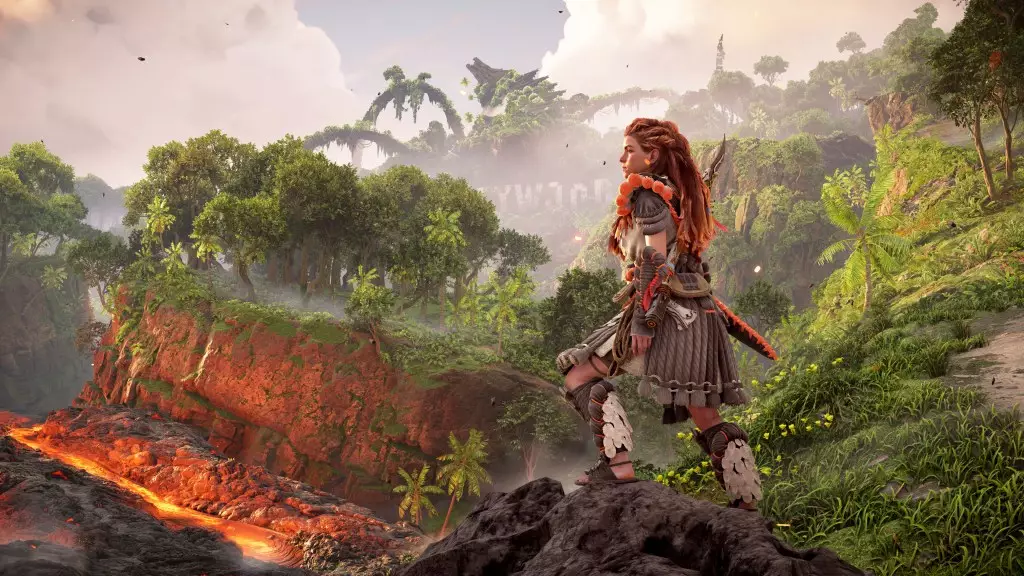In recent years, the role of artificial intelligence (AI) in gaming has taken center stage, prompting major industry players to explore how this technology can enhance the gaming experience. While Microsoft has notably focused on AI’s possibilities for game ideation and brainstorming, Sony—a powerhouse in the gaming landscape through its PlayStation brand—has adopted a more discreet approach. By utilizing AI predominantly in hardware and frame generation, Sony seeks to elevate gameplay through technological enhancements rather than overhauling its popular software portfolio. However, recent leaks indicate that this strategy may soon include exciting developments in character interactivity.
The Leaked Presentation: A Glimpse into the Future
A leaked video presentation has ignited discussions about AI’s potential role in Sony’s gaming narratives. This footage, which has since been removed due to copyright claims, presented a prototype where the beloved character Aloy from the acclaimed *Horizon* series engages players in conversation using artificially generated speech, animations, and writing. Directed by Sony’s own Sharwin Raghoebardajal, the prototype capitalizes on advanced AI technologies such as OpenAI’s Whisper for speech recognition, GPT-4 for conversation generation, and Sony’s proprietary Emotional Voice Synthesis for voice output. Aloy’s character model, based on *Horizon: Forbidden West*, showcases how far character design has come, but the implications of AI-driven dialogue are still stirring controversy.
The Ethical Dilemma: AI in Voice Acting
As the video game industry begins to explore AI-driven character interactions, it sows the seeds of ethical debate, particularly concerning voice acting. Voice actors like Ashley Burch, widely recognized for her role as Aloy, are left navigating an industry fraught with uncertainties. SAG-AFTRA’s ongoing strike over AI-related issues underscores the urgent need for protective measures to safeguard actors’ livelihoods against potential replacements with digital imitations. The reliance on AI in creating realistic character dialogue could perilously undermine the artistry behind voice acting and storytelling in games. As conversations around AI grow, developers must balance innovation with respect for human talent.
The Question of Value: Is AI Enhancing the Experience?
Despite the allure of having AI-generated characters capable of responding to player inquiries, one cannot help but question the added value of such interactions. The writing and character development in Sony’s *Horizon* titles have been praised for their depth, focusing on humanity’s relationship with technology and the implications of past failures. By potentially replacing these narratives with AI conversations, there is a risk that nuanced storytelling could be diminished. Players may find satisfaction in deep narratives and impactful dialogues rather than scripted interactions with AI. The challenge lies in creatively marrying AI capabilities with strong storytelling without sacrificing the emotional resonance that characters like Aloy have come to embody.
A Bright Future for AI and Gaming
While concerns regarding the reliance on AI in gaming are valid, they do not overshadow the vast potential that technology holds. Innovation in AI could undoubtedly lead to enriched gameplay experiences, immersing players in unprecedented ways. Personalized interactions with characters, responsive storylines, and adaptive gameplay mechanics could redefine how players connect with the game world. Sony’s internal experimentation shows a forward-thinking mindset, suggesting that they are contemplating how these innovations can serve greater storytelling ambitions rather than merely using AI as a novelty.
Emphasizing the dynamic between human creativity and AI technology could lead to a more blended approach that leverages both realms. If executed thoughtfully, these advancements have the power to elevate gaming experiences from mere pastimes to profound storytelling mediums. While the debate over AI’s role in voice acting and narrative integrity continues, embracing this technology with careful consideration could ultimately lead to groundbreaking innovations in the gaming landscape.
The future of PlayStation is poised on the edge of possibility, where the challenge is not just to innovate for the sake of novelty but to enrich the emotional fabric of gaming through intelligent integration of AI.

